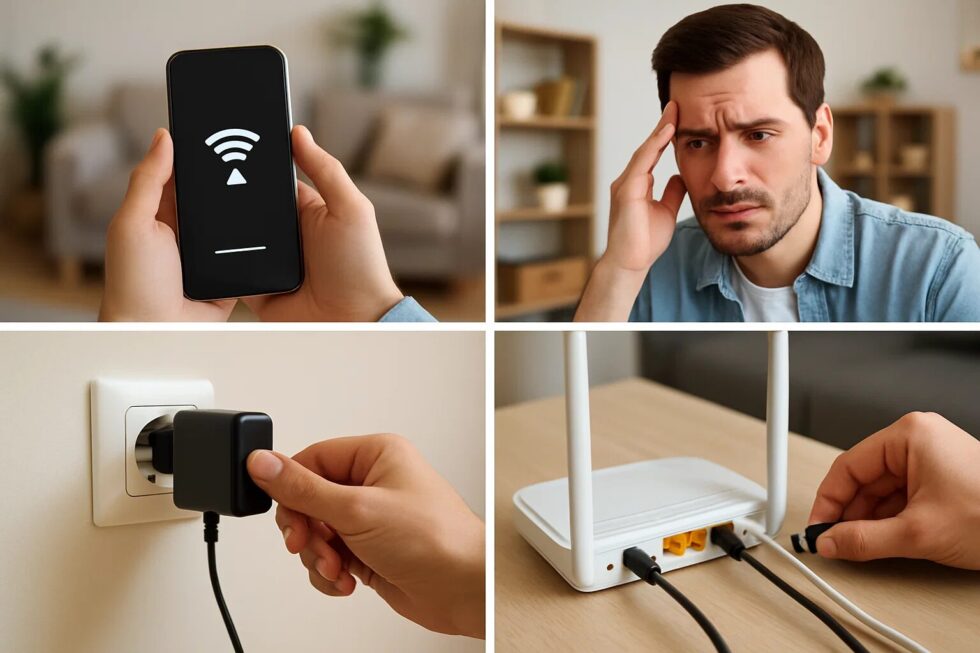What to Do if Your Home Internet Stops Working: Step-by-Step Guide for Germany

Home internet problems can strike at the most inconvenient moment — during an important video call, while streaming a movie, or downloading urgent documents. Causes can range from an outage at your internet service provider’s end to hardware malfunctions or incorrect settings. Understanding the basic troubleshooting steps allows you to restore the connection quickly and avoid long waits for tech support. This is particularly important in Germany, where stable internet is a necessity for work, study, and daily life. In this guide, you’ll find practical steps and insider tips, plus up-to-date information on leading German providers with addresses and prices. For more resources, visit G.business.
Checking Connection Status and Equipment
The first step is to confirm that the issue is not with your provider. Sometimes disruptions are caused by maintenance work or line failures. Most German ISPs have a “Network Status” page with real-time updates. If there’s no notice, check your modem or router lights. Red or flashing LEDs often indicate a connection error. Start by rebooting your device — unplug it for about 30 seconds, then plug it back in. This simple action resolves temporary issues in most cases.
Restarting and Inspecting the Router
If the internet still doesn’t work, focus on the router. Overheating, outdated firmware, or incorrect settings may be the cause. Restart the device using the power button or the admin panel. Ensure it is placed in an open area, away from heat sources and electromagnetic interference. For testing, connect your computer directly to the modem with an Ethernet cable — if the connection works, the problem lies in the Wi-Fi network. Updating your router’s firmware is usually straightforward via its web interface and can resolve many issues.
Diagnosing Wi-Fi Connection Problems
Sometimes the issue is not the internet itself but a weak Wi-Fi signal. Use free tools such as Speedtest.net to measure your speed and compare it with your tariff. If the speed is significantly lower, change the Wi-Fi channel in your router settings to avoid congestion. Positioning the router centrally in your home or adding signal extenders can improve coverage. In larger homes, a Mesh Wi-Fi system is often the best choice. Also, check for unauthorized devices connected to your network, as they can slow down the connection.
Step-by-Step Checklist Before Calling Tech Support
Before contacting your ISP, try these steps:
- Check your ISP’s network status page.
- Restart your modem or router.
- Connect your computer directly with an Ethernet cable.
- Check router placement and Wi-Fi signal strength.
- Change the Wi-Fi channel if congested.
- Update router firmware.
- Disconnect unnecessary devices.
- Inspect cables for damage.
- Run a speed test.
- If all fails, call your ISP.
Common Internet Issues and Solutions in Germany
| Cause | Symptoms | Solution |
|---|---|---|
| ISP outage | No connection on all devices | Check status page, wait for fix |
| Router overheating | Internet drops after 10–15 min | Move to cooler place, restart |
| Damaged cable | No signal or low speed | Replace cable |
| Congested Wi-Fi channel | Low speed on Wi-Fi only | Change channel in settings |
| Computer virus | Slow connection, pop-up ads | Run antivirus scan |
Top German Internet Providers — Addresses, Prices, and Tips (2025)
| Provider | Headquarters | Monthly Price (2025) | Speed | Contract Details |
|---|---|---|---|---|
| Deutsche Telekom | Friedrich-Ebert-Allee 140, 53113 Bonn | from €34.95 | up to 250 Mbps | 24 months, MagentaZuhause, often with free router |
| Vodafone Germany | Ferdinand-Braun-Platz 1, 40549 Düsseldorf | from €29.99 | up to 1000 Mbps | 24 months, cable or DSL |
| 1&1 | Elgendorfer Str. 57, 56410 Montabaur | from €29.99 | up to 250 Mbps | 12–24 months, often with switch bonus |
| o2 (Telefónica Germany) | Georg-Brauchle-Ring 50, 80992 Munich | from €24.99 | up to 1000 Mbps | 24 months, DSL or cable |
| M-net | Emmy-Noether-Str. 2, 80287 Munich | from €29.90 | up to 600 Mbps | 24 months, available in Bavaria and Hesse |
Consumer tips in Germany:
- Take advantage of promotional pricing: Many providers reduce fees by €5–15 for the first 6–12 months.
- Check switch bonuses: Some ISPs cover your old contract’s remaining term.
- Router deals: Many include premium routers like the Fritz!Box at no extra cost.
- Compare regional ISPs: Local providers in Bavaria, Hesse, and Baden-Württemberg can offer better rates and coverage than national companies.
A stable home internet connection is vital for work, entertainment, and daily communication in Germany. Most issues can be solved with simple steps such as restarting the router, checking cables, or changing Wi-Fi settings — often without needing tech support. Regularly reviewing your contract, updating firmware, and ensuring optimal router placement can greatly reduce the risk of outages. Security is equally important: protect your network with strong passwords and limit unauthorized access. Using the tips above, you can save time, stress, and money — and if issues persist, switching to a provider with better regional coverage may be the best long-term solution.
Stay connected for news that works — timely, factual, and free from opinion — and insights that matter now: How to Save Electricity in Germany: Practical Tips and Hacks